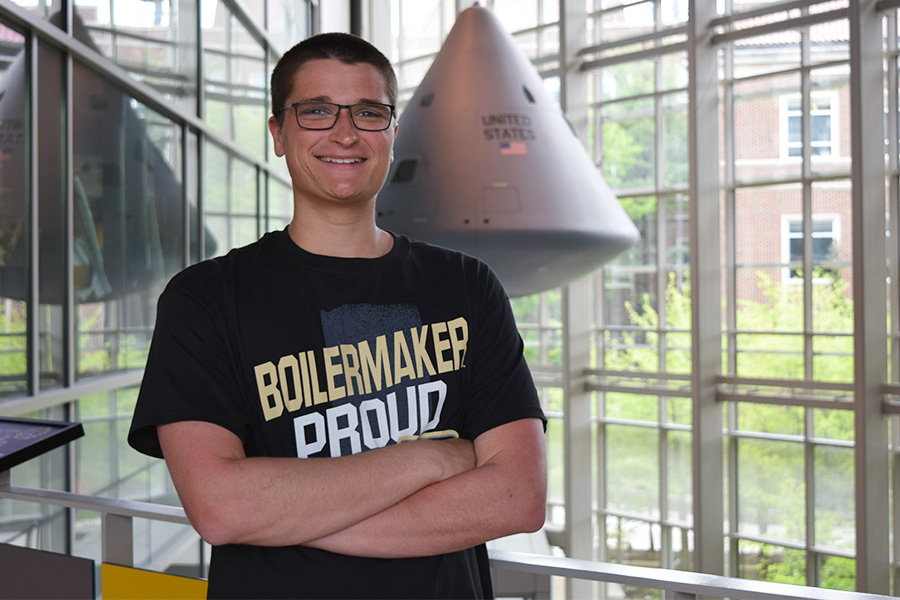Grad student selected for SMART Scholarship-for-Service Program

AAE graduate student Jay Evans was selected for the Science Mathematics and Research for Transformation (SMART) Scholarship-for-Service Program.
The program was established as a concentrated effort to enhance the Department of Defense workforce with talented, innovative and brilliant scientists, engineers, and researchers. SMART Scholars have been working with labs and agencies of the Army, Navy, Air Force and Additional DoD to support the warfighter and create an impact to secure our nation.
Since its inception, Purdue has had 40 SMART Scholars, including one every year since 2005. Last year, only 18 percent of applicants were chosen for the program.
SMART funds the total cost of full-time tuition as well as a cash stipend ranging from $25,000-$38,000, depending on degree being pursued, health insurance, book allowances, and summer internships that range from 8-12 weeks. The Scholars also are guaranteed civilian employment with the DoD upon degree completion, the program’s website said.
“I am ecstatic to have received the SMART Scholarship, because it will provide me with the financial means to pursue research goals, and it will set me up with an excellent start to my career,” Evans says.
Evans says he will work in the Department of Defense’s Naval Air Warfare Center Weapons Division in China Lake, Calif., for the same number of years he’s in the Scholarship-for-Service program. He also will intern at that facility every summer, starting in 2020, until he graduates.
“The opportunities that this scholarship will give me are quite unique, and I cannot wait to get started,” he says.
Evans’ master’s and doctoral research will be focused on detailing the complex, coupled combustion physics in solid-fueled ramjets (SFRJs) through experiment. SFRJs are a type of propulsion system used mainly on missile systems that provide advantages over solid rocket motors (SRMs), due to the fact that SFRJs utilize the air that they fly through as oxidizer, coupled with the solid fuel stored within them to propel the missile system. That allows for tremendous weight savings, and thus increases in range, efficiency, maneuverability, and agility over SRM-based missiles, because SRM missiles have oxidizer packed inside that takes up a large amount of weight.
“There is a current need to better understand the complex physics involving chemical kinetics, turbulence, heat transfer, etc., within SFRJ combustors,” says Evans, a master’s student under Carson Slabaugh, an assistant professor in AAE. “To work towards this, our group will develop a small-scale SFRJ combustor that will be analyzed with cutting-edge laser diagnostic techniques while, in parallel, developing a full research-scale SFRJ. I am very much looking forward to this as SFRJs are a new and relevant topic in propulsion research with a lot of room for discovery.
“Additionally, the resources and expertise at the High Pressure Laboratory at Zucrow Labs will allow our team to make great strides in this research field. The results of this experimental research will be used to refine ballistic models of SFRJs that engineers can then use to design these systems with greater fidelity.”
